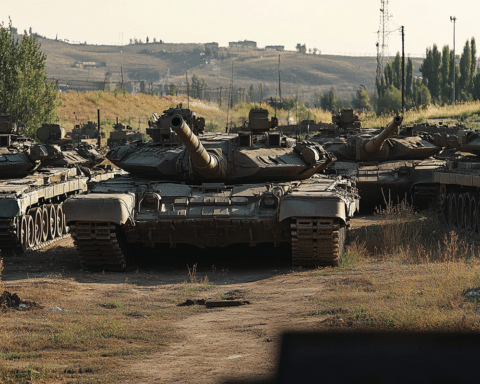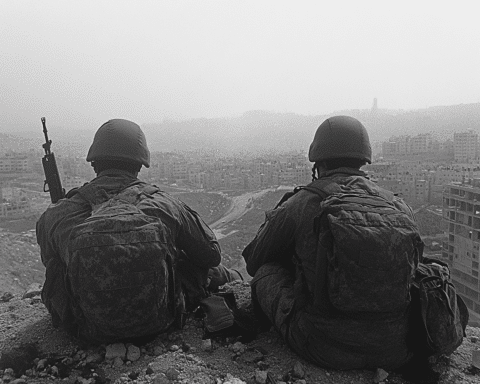The ongoing conflict between Israel and Hezbollah has intensified, resulting in tragic incidents involving both the Lebanese army and United Nations peacekeepers. Recent strikes by Israeli forces have led to the deaths of Lebanese soldiers and injuries among peacekeepers stationed in southern Lebanon, further complicating the region’s already tense situation.
Israeli Airstrikes Target Lebanese Army
In a significant escalation, Israeli airstrikes killed two Lebanese soldiers and wounded three others on Friday. According to Lebanon’s military, the strike targeted a building near a military checkpoint in Kafra, Bint Jbeil province. The Israeli military has yet to comment on this attack. Lebanon’s army, which has mostly tried to stay out of the ongoing conflict, has found itself caught between the actions of Israel and Iran-backed Hezbollah militants. As Israeli forces launched a ground invasion in southern Lebanon, the Lebanese army pulled back its troops, but the escalation has made avoiding direct involvement increasingly tricky.
UN Peacekeepers Caught in the Crossfire
The United Nations peacekeeping force in Lebanon, known as UNIFIL, has faced challenges amidst the conflict. Explosions struck near an observation tower at UNIFIL’s headquarters in Naqoura, wounding two peacekeepers. UNIFIL did not specify the cause of the blasts, but the Israeli military claimed that their forces responded to a perceived threat, inadvertently hitting the UN post. The incident is one of several involving UNIFIL, including damage to a bunker and communication systems during Israeli attacks. European countries like Italy and France, who contribute troops to UNIFIL, have sharply criticized these incidents.
Tragic Strikes in Beirut
In central Beirut, the devastation reached new levels as Israeli airstrikes targeted the city, killing at least 22 people and injuring many others. The strikes hit two residential buildings, leading to extensive damage and displacing more families in a city already grappling with the consequences of war. Rescue workers were seen digging through the rubble, searching for survivors.
One resident, Ahmad al-Khatib, described the terrifying moment when the blasts hit his home. “The world suddenly turned upside down, and darkness prevailed,” he said tearfully, recounting how he pulled his young daughter from the rubble. His wife remains in critical condition in a Beirut hospital after suffering head injuries in the attack.
Hezbollah’s Role and International Reactions
Hezbollah has continued its rocket fire into Israel, drawing retaliatory airstrikes. Israel’s intensified campaign, which began in late September, aims to push Hezbollah back from the border, allowing evacuated Israeli citizens to return home. Secretary of State Antony Blinken reiterated U.S. support for Israel’s actions, stating that the country has a “clear and very legitimate” right to defend its borders and secure the safe return of its citizens.
As the conflict continues, tensions remain high. The war has claimed the lives of more than 2,100 Lebanese individuals, including civilians, medical personnel, and Hezbollah fighters. On the other side, Hezbollah’s attacks have led to the deaths of 29 Israeli civilians and 39 soldiers.
A Region on the Brink
The escalating violence between Israel and Hezbollah, compounded by the involvement of Lebanese forces and UN peacekeepers, has created a precarious situation. The danger of further escalation looms large, with Israeli Prime Minister Netanyahu warning that Lebanon could face similar devastation to that seen in Gaza if Hezbollah’s actions continue. As both sides prepare for potential further confrontations, the future remains uncertain for the people caught during this conflict.
The international community watches closely, hoping for a resolution to prevent further loss of life and the spread of conflict across the region. The coming weeks will be critical in determining whether peace can be restored or if the area will see a deepening of this already tragic war.




